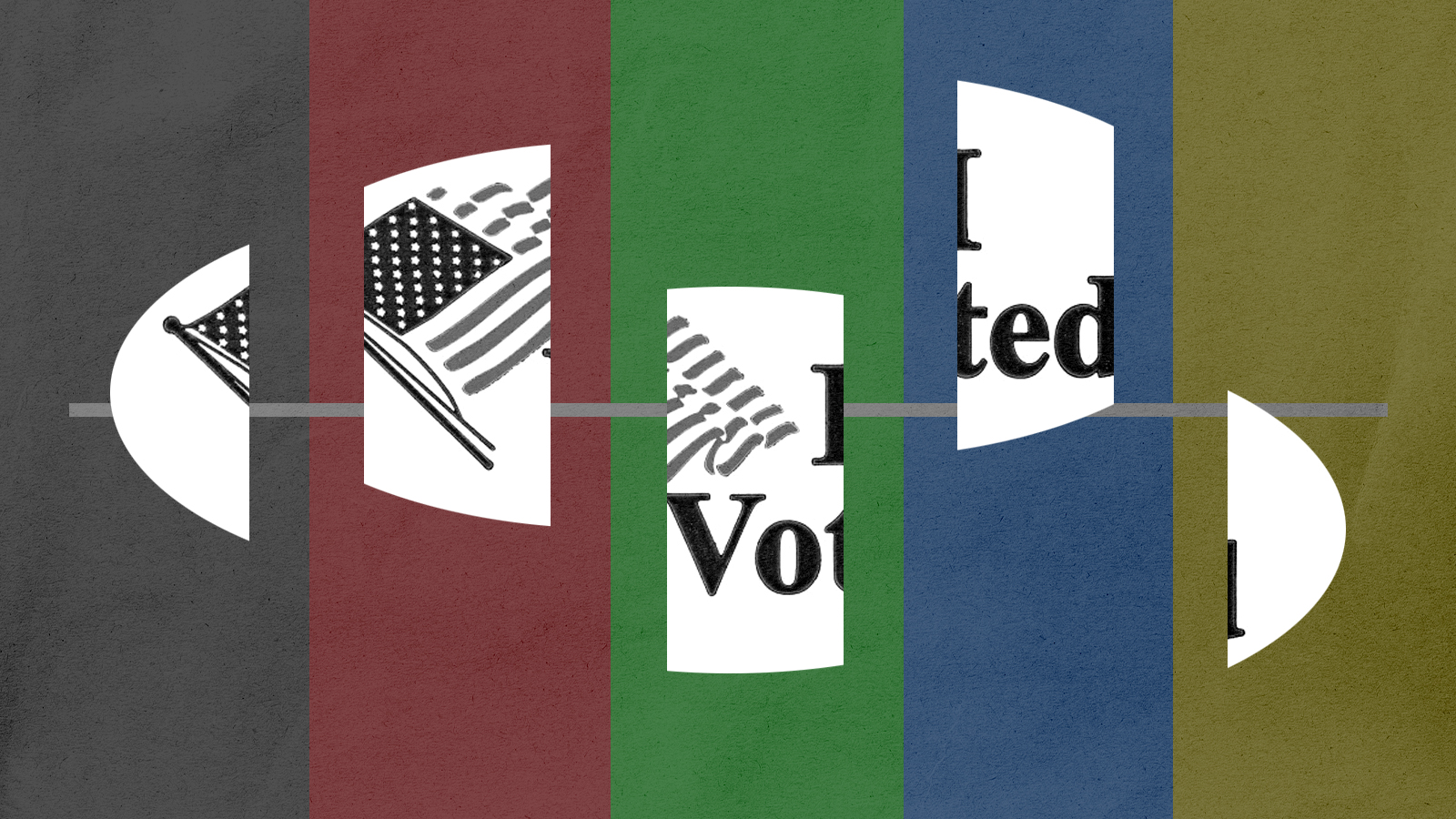A 5-party thought experiment


A free daily email with the biggest news stories of the day – and the best features from TheWeek.com
You are now subscribed
Your newsletter sign-up was successful
Electoral systems matter. But how much?
That question comes to mind in reviewing the fascinating results of a new poll by Echelon Insights that examines the American electorate in the wake of the 2020 election. It hits with special force in the poll's experiment with gauging support for a larger number of parties. (See question 18 here.)
The pollsters offered respondents five parties to choose from:
The Week
Escape your echo chamber. Get the facts behind the news, plus analysis from multiple perspectives.

Sign up for The Week's Free Newsletters
From our morning news briefing to a weekly Good News Newsletter, get the best of The Week delivered directly to your inbox.
From our morning news briefing to a weekly Good News Newsletter, get the best of The Week delivered directly to your inbox.
- An economically liberal labor party, which was chosen by 26 percent
- A nationalist "America First" party, which was chosen by 24 percent
- A Reaganite conservative party, which was chosen by 19 percent
- A socially and economically libertarian party, which was chosen by 10 percent
- A more radically left-leaning green party, which was chosen by 9 percent
(A total of 12 percent were unsure where to place themselves in any of the parties.)
On one level, it's easy to see how this could indicate that electoral systems matter very little. The current GOP is a combination of the nationalist and Reaganite parties with 43 percent, while the Democrats are a combination of the other three with 45 percent. If we imagine those parties gravitating to one another in governing coalitions under a proportional system of government, very little would change from the status quo — though divvying up Cabinet positions among the parties in the respective coalitions could certainly lead to ... interesting results. (Imagine Health and Human Services led by a member of the conservative party, or the Labor Department headed up by a member of the green party.)
But who's to say those partisan configurations would cohere as they do today? In the rank ordering revealed by the poll, the parties to earn the most "votes" were the Biden-like labor party and the Trumpian nationalist party. Is it conceivable that such a combination could form a governing coalition, leaving out the Reaganite conservatives, the consistent libertarians, and the environmentally focused leftists? If not, might either labor or the nationalists be able to work together with two or more of the other parties in an ideological and policy blend unthinkable in our current two-party, first-past-the-post electoral system?
We'll probably never get a chance to test it in the real world. But running that thought experiment in our heads sure can be fruitful and fun.
A free daily email with the biggest news stories of the day – and the best features from TheWeek.com
Damon Linker is a senior correspondent at TheWeek.com. He is also a former contributing editor at The New Republic and the author of The Theocons and The Religious Test.
-
 5 cinematic cartoons about Bezos betting big on 'Melania'
5 cinematic cartoons about Bezos betting big on 'Melania'Cartoons Artists take on a girlboss, a fetching newspaper, and more
-
 The fall of the generals: China’s military purge
The fall of the generals: China’s military purgeIn the Spotlight Xi Jinping’s extraordinary removal of senior general proves that no-one is safe from anti-corruption drive that has investigated millions
-
 Why the Gorton and Denton by-election is a ‘Frankenstein’s monster’
Why the Gorton and Denton by-election is a ‘Frankenstein’s monster’Talking Point Reform and the Greens have the Labour seat in their sights, but the constituency’s complex demographics make messaging tricky
-
 Big-time money squabbles: the conflict over California’s proposed billionaire tax
Big-time money squabbles: the conflict over California’s proposed billionaire taxTalking Points Californians worth more than $1.1 billion would pay a one-time 5% tax
-
 Did Alex Pretti’s killing open a GOP rift on guns?
Did Alex Pretti’s killing open a GOP rift on guns?Talking Points Second Amendment groups push back on the White House narrative
-
 Washington grapples with ICE’s growing footprint — and future
Washington grapples with ICE’s growing footprint — and futureTALKING POINTS The deadly provocations of federal officers in Minnesota have put ICE back in the national spotlight
-
 Trump’s Greenland ambitions push NATO to the edge
Trump’s Greenland ambitions push NATO to the edgeTalking Points The military alliance is facing its worst-ever crisis
-
 Why is Trump threatening defense firms?
Why is Trump threatening defense firms?Talking Points CEO pay and stock buybacks will be restricted
-
 The billionaires’ wealth tax: a catastrophe for California?
The billionaires’ wealth tax: a catastrophe for California?Talking Point Peter Thiel and Larry Page preparing to change state residency
-
 Trump considers giving Ukraine a security guarantee
Trump considers giving Ukraine a security guaranteeTalking Points Zelenskyy says it is a requirement for peace. Will Putin go along?
-
 Bari Weiss’ ‘60 Minutes’ scandal is about more than one report
Bari Weiss’ ‘60 Minutes’ scandal is about more than one reportIN THE SPOTLIGHT By blocking an approved segment on a controversial prison holding US deportees in El Salvador, the editor-in-chief of CBS News has become the main story
